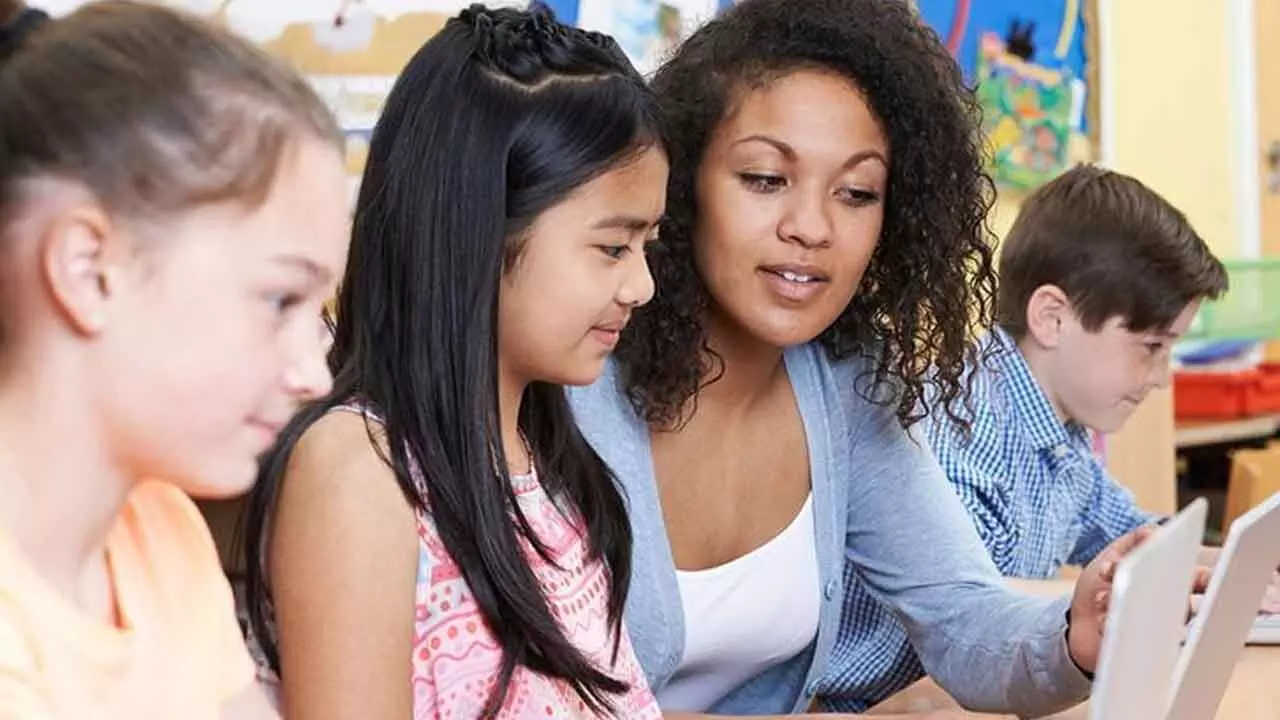Strategies to implement digital literacy & use of technology among students

Educational institutions must ensure that digital literacy is taught through a well-designed and planned curriculum. In order to do so, it is implied that children must be taught the necessary skills to help them communicate using digital systems. Schools that allow students to bring devices such as laptops to school, must invest in technical systems that filter content and monitor digital media through strong surveillance methods.
Hiding behind their screens, unnamed and anonymous, it has become increasingly common nowadays, to come across young people spewing venom about their fellow classmates through instant messages and on social media. Such irresponsible act that may include harassment, spreading ugly rumours or trickery endanger safety and has the power to lower educational attainment and lead to mental health issues amongst young children and adolescents.
UNICEF states that “no child is absolutely safe in the digital world”. Emphasising the need to protect children from the “worst digital technology has to offer, and expanding their access to the best” educators and guardians must ensure that “we can tip the balance for the better”.
A few research-based strategies that schools may adopt to achieve that balance are:
1. Constant and ongoing conversations to help children understand the risks as well as the benefits of the worldwide web.
2. Educating children and supporting their social-emotional competencies can help them develop a greater sense of responsibility and the ability how to think for themselves thereby learning to differentiate between right and wrong.
3. It is also essential to establish a healthy school environment where positive peer relationships are nurtured and support systems are in place to protect and prevent online misconduct.
4. It is also possible for schools to control excessive device usage by restricting usage to specific times and particular learning activities.
5. It is also essential that schools to upskill their technological competencies that help them understand the potential risks so that they install the necessary security measures and actively monitor safe internet browsing.
Educational institutions must ensure that digital literacy is taught through a well-designed and planned curriculum. In order to do so, it is implied that children must be taught the necessary skills to help them communicate using digital systems. Schools that allow students to bring devices such as laptops to school, must invest in technical systems that filter content and monitor digital media through strong surveillance methods.
It is also essential that schools facilitate the development of skills and attributes that equip students to navigate a complex information landscape. Students must be taught to question the validity, authenticity and reliability of information sources. Teaching students to analyse sources critically and helping them understand the difference between facts, opinions and value judgements empowers them and allows them to assume greater control over their own learning.
Beyond this, students must understand the meaning of intellectual property and academic honesty so that they understand how to avoid plagiarism. Plagiarism is the act of “copy-pasting” that involves using someone else’s ideas, words, theories opinions or illustrations and claiming them as their own without giving the original author or creator due credit. Ideally, teachers and educators must teach studentsthrough practice, by setting examples andbeing role models themselves that this is an act of academic dishonesty. Installing screening software such as Turnitin allows schools to monitor and check for such violations.
Parental education is also of utmost importance. Parents must not try and ban devices at home. Rather it is recommended that children be taught to take the ‘Goldilocks’ approach to screen time- not too much, not too little. The ideal approach is to focus more on monitoring what exactly the children are doing online, rather than restricting the time that they spend browsing. This approach can help protect them and ensure that they get more value from the time spent online.
However, as they get older honest and frank conversations that help them understand the risks of explicit content sharing-that everything posted online is in the public domain and no longer considered private. Furthermore, children need to be taught to never share personal information as well as how to control their privacy settings. It is important to teach them the value of being empathetic at all times so that become more resilient online and ensure that they contribute to reduce the spread of online abuse and hatred.
(The author is Principal, Modern High School International, Kolkata)

